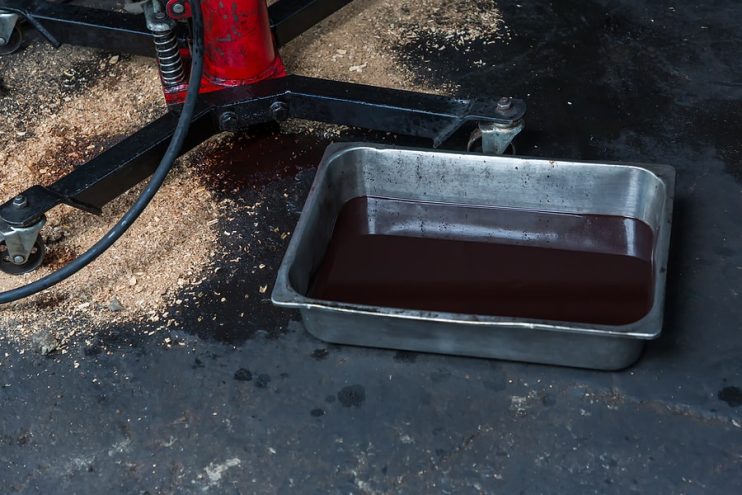
There are many consumables used by cars – from oil and petrol, through to tyres and brake fluid. When these products come to the natural end of their lifespan, they need to be processed correctly, so as not to present a danger to the environment and other people. What are the most common consumables, and how can we dispose of them, with minimum fuss and maximum safety?
Table of contents:
Motor Oil
Engine oil is the single largest source of oil pollution. Clean oil is bad enough, forming a film over water that allows it to spread across great distances – one pint of motor oil can produce a slick that is able to cover an entire acre, damaging plant and insect ecosystems, causing problems for years.
Old oil is even worse, as it picks up heavy metals and contaminants that could potentially spread on disposal. Therefore disposing of old oil in the waste-water system is a big no-no.
What to do…
Ideally, old oil can be processed and recycled. It is actually only impurities in the oil that make it unusable, so removing these, allows you to put the oil back into circulation.
- Drain the oil into an old jar, or other suitable container, with a tight lid.
- Make sure your container is clean, and has not been used to hold other materials that might react with the oil.
- See if you can find an oil recycler, where you can drop off old oil for processing. Additionally many service centres and garages will accept old oil for recycling.
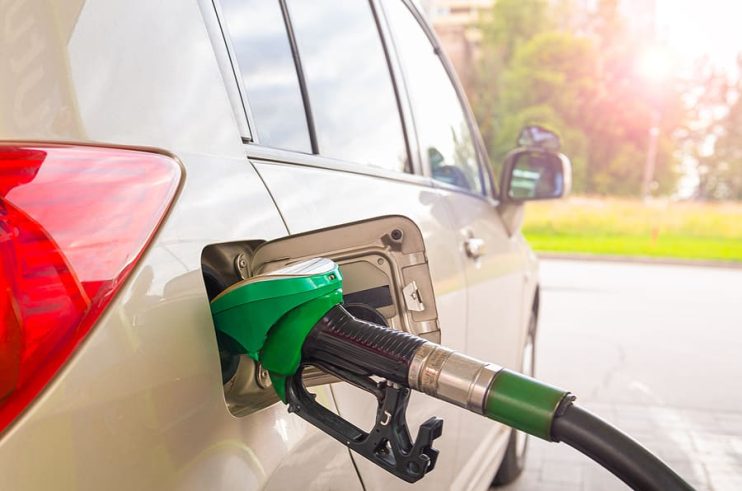
Fuel
Petrol is highly flammable, and can cause irritation if it comes into contact with your skin. Diesel is not so dangerous. However, much like oil, it can pollute the ground and cause contamination to soil and the associated ecosystems, if disposed of in the waste-water system.
Make sure you store fuel sensibly – in a suitably marked container, away from direct sunlight and sources of ignition. Remember, that petrol will explode on contact with flame. If fuel becomes contaminated, then you must have it processed by a hazardous waste contractor.
What to do…
- Reuse the fuel in any vehicle that’s been designed to take petrol or diesel.
- Alternatively, give it away to friends, or to charities, that could use the fuel to power their vehicles and save money.
- Get in touch with your local authorities, to see if fuel is accepted at your local recycling centre. This can be a good place to start, as if they don’t process fuel, they can often recommend alternative companies.
- Enter your postcode on the GOV.UK website to find your nearest disposal centre.
- For larger amounts of fuel, you should be able to find dedicated processing companies, which can visit your site and collect the old fuel.
Anti-Freeze
Much like oil, do not dispose of antifreeze by flushing it down a toilet, or putting it into the local drain system. Because it is based on a glycol solution, which is extracted from sugar, antifreeze has a sweet smell and taste. Therefore unattended antifreeze could be appealing to children, leading to accidental ingestion. If such an event happens, then contact your local hospital immediately, as glycol can cause massive liver damage.
What to do…
- Empty all of the coolant from your car, and replace it with distilled water. Run your car’s engine for a couple of minutes, allowing the distilled water to flush the coolant system.
- Then after stopping the engine, remove the water, and replace with fresh coolant.
- Store it in an old bottle, that’s not going to react with the glycol (the active ingredient) in the antifreeze,and ensure that old antifreeze is stored away from dirty antifreeze.
- If you do need to dispose of old antifreeze, then use a professional collection service or take it to a disposal centre.
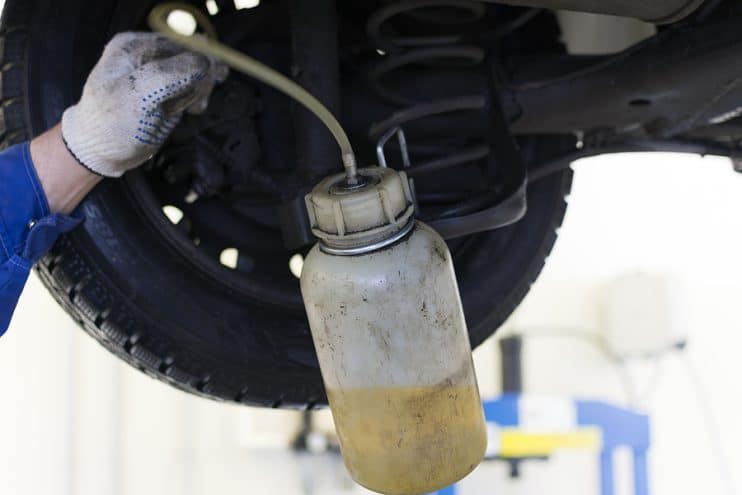
Brake Fluid
Brake fluid is a dangerous material that contains traces of heavy metals, and it can be very flammable too. Because of its reactive qualities, it is recommended that the fluid is not mixed with transmission fluid, power steering fluid or oil. It is possible to dispose of it at home, through the following process:
What to do…
- Bleed the brakes, and catch the fluid in a suitable non-reactive container, such as a glass jar.
- Pour the brake fluid into a large metal pan, with about a half inch to inch of kitty litter in the bottom. Allow the brake fluid to permeate into the litter.
- Allow the pan to sit for 3 to 4 days, away from heat, in a well-ventilated area. Because the fluid is mainly alcohol-based, this will allow it to evaporate.
- When the fluid has all been used up, then dispose of the kitty litter in a plastic bag.
- Alternatively, you can seal the material inside a container, and either take it to a waste recycling centre, an auto-retailer with a collection facility, or call up a collection company.
Car Battery
Car batteries are full of corrosive acid, which can cause severe burns on contact with the skin. As a result, it is illegal to try to dispose of the battery through any kind of standard waste-handling unit in the UK, and you will need to find a specialist recycling unit to help you get rid of this old part.
Battery recycling is very efficient, and can now process up to 90% of batteries for re-use – with around 99% of all car batteries made up of recycled parts, making them one of the most recycled items in the UK.
What to do…
- When you remove the battery from its housing, we would always recommend you wear protective clothing, and thoroughly inspect the car battery for cracks and leaks,
- If there is major damage, then you will need to call in a professional to collect it from your premises.
- Otherwise, if the battery is safe, then place it upright in the boot of your vehicle, making sure it is well protected and secured.
- Make sure that the battery’s terminals are covered, to prevent discharge during transit.
- Drive it to a battery recycling centre, where they will break down the battery into its component parts, most of which can be recycled easily, with the acid being neutralised in the process.
Car Tyres
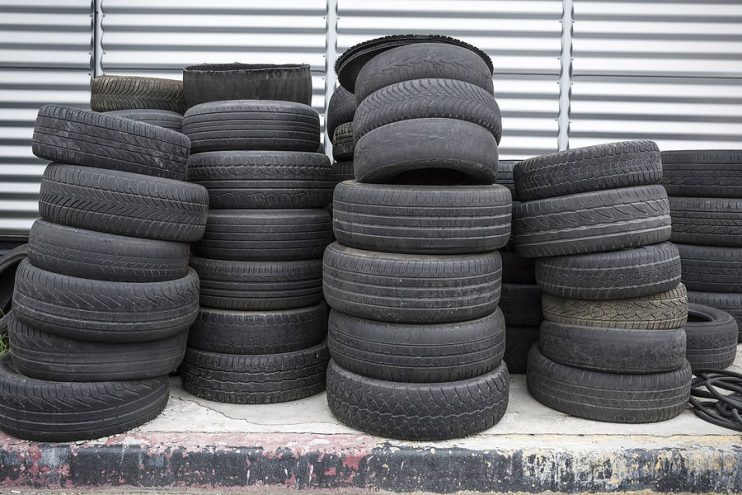
Most of the time, you’ll only need to get rid of your car tyres when they’re old and worn out, and are being changed at a service centre for new ones. Most service centres are able to take the older tyres that are no longer required, and recycle them for a small charge. However in the event that you have decided to change your tyres at home, then follow these steps:
What to do…
- Check with your council to see if you’re permitted to drop tyres at your local waste handling centre. There may be a small charge – but this can often be the easiest option.
- Alternatively garages and mechanics in your area may offer a tyre disposal service. Check on Google to see what’s available – and consider looking for a tyre recycling centre too.
- You could also donate the tyres to a local playpark, zoo, farm or even a go kart centre, which could easily repurpose the tyres as part of the fixtures and fittings.
- If there’s still a little life in the tread, then it may be possible for you to sell the tyres on Gumtree.
Scrap Metal
If you have small pieces of metal (think for instance bodywork), then you can easily sell this to a scrap dealer, or use one of the many services online that offer collection for free.
However, selling scrap for cash is illegal. Under the 2013 Scrap Metal Dealers Act, you can only accept payments made by electronic transfer, payment card or crossed cheque, so that there is a record of the payment.
What to do…
- Look around on Google or in any other business directory to find a suitable scrap dealer collection or drop off service.
- Ask to see their license and check that it is up to date – even if you are giving away the scrap for free, the dealer must prove their credentials.
- Remember that a mobile scrap dealer could potentially be less likely to have a license than a fixed premises operation.
Please note – if you have to scrap your whole vehicle, then under UK law you must have it processed by a regulated operator. They will extract all the fluids such as brake fluid and oil from the car, and perform more dangerous work, such as the detonation of air bag charges to dispose of the vehicle correctly.
And finally…
Recycling is all about doing your part to save the planet. Reducing consumption is the responsibility of everyone – and it starts with maximising the use of our day to day items to minimise waste. This can be as simple as making sure you don’t leave your lights on and run down your battery, to only purchasing smaller quantities of brake fluid – as it can spoil on the shelf and doesn’t need to be changed regularly.

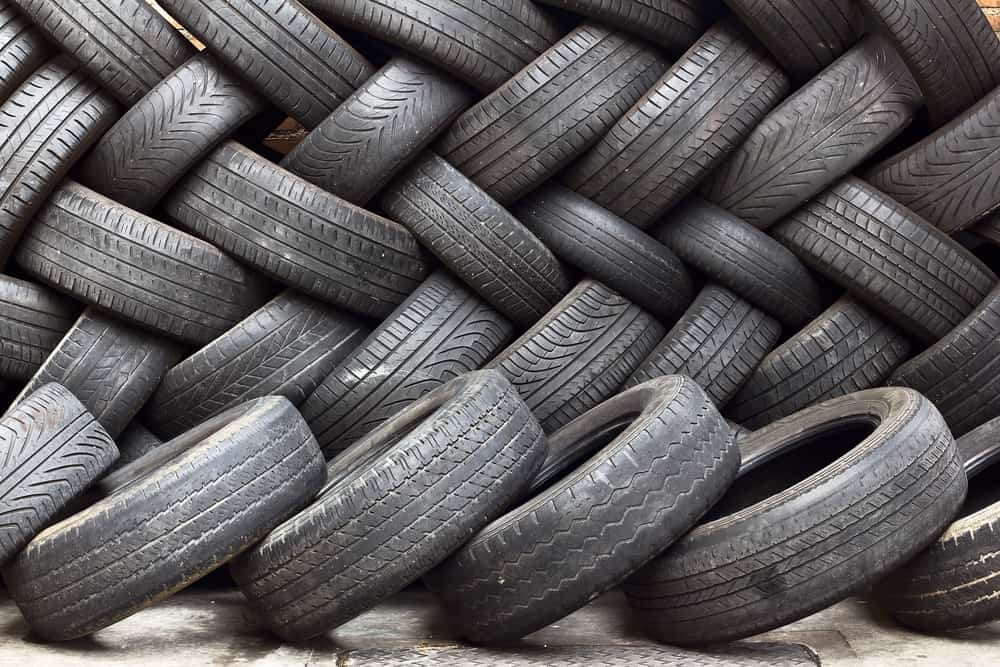


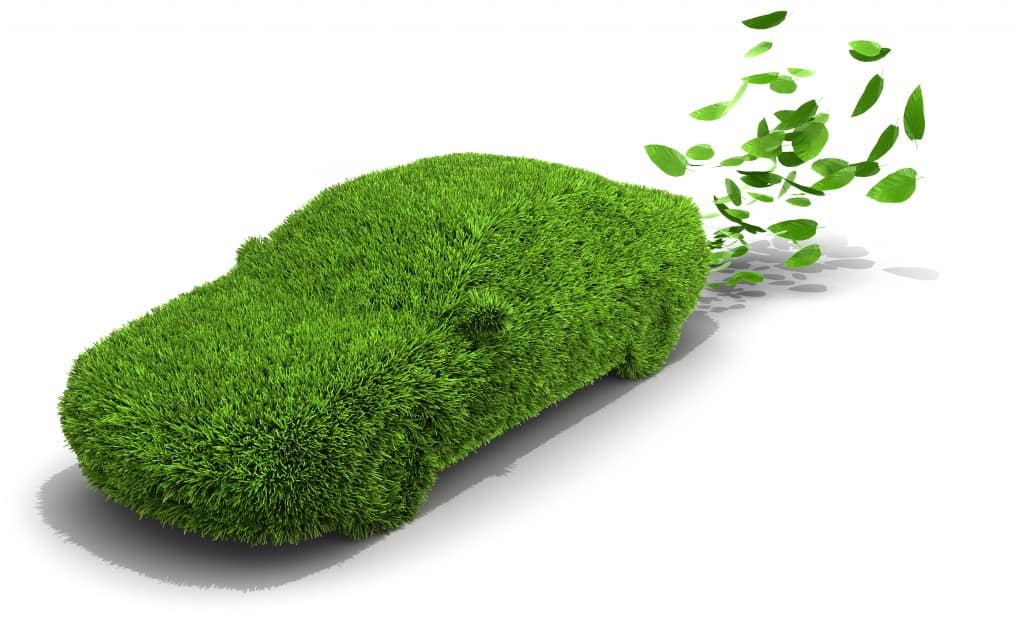





.png)